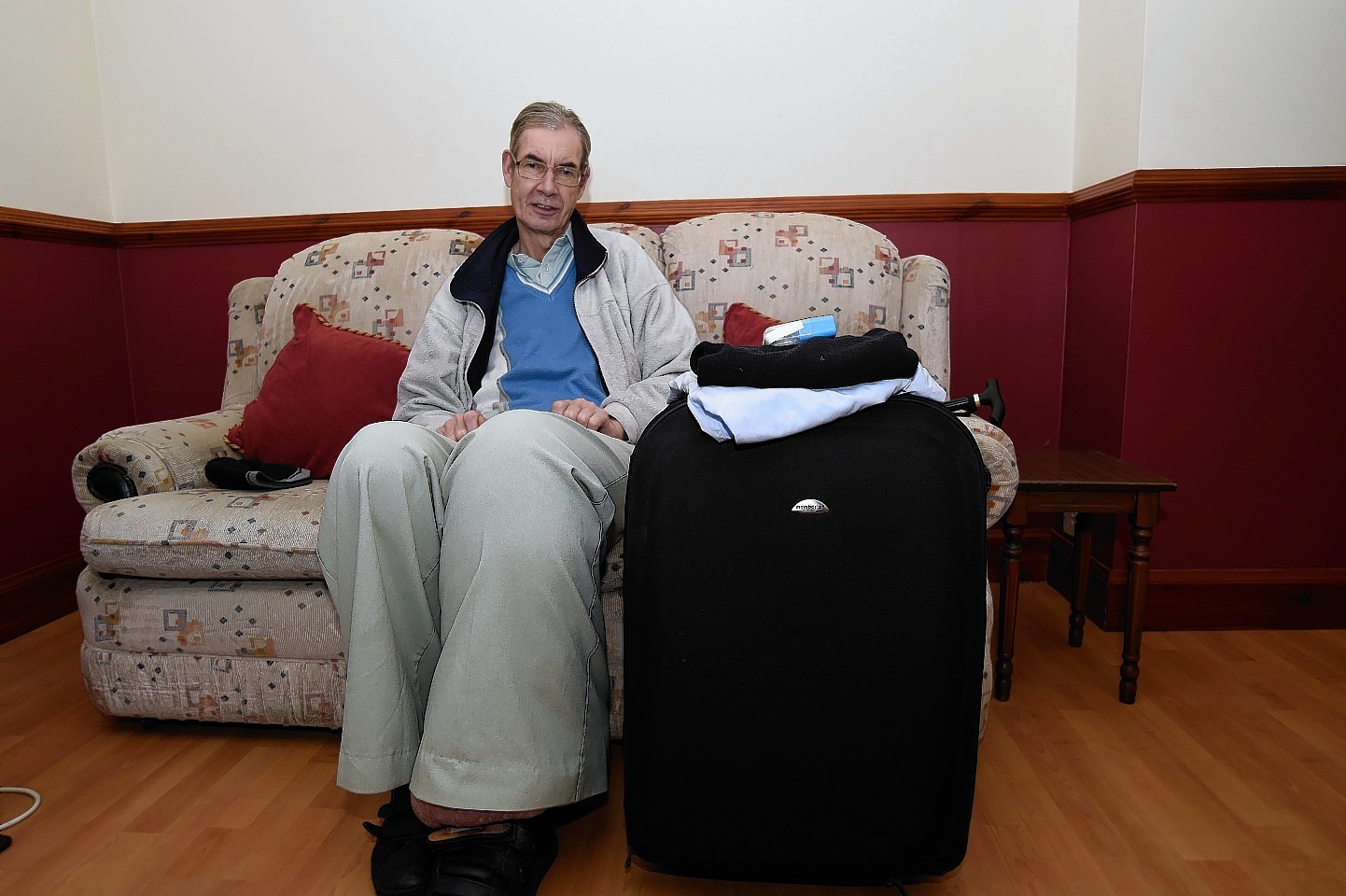An OAP dubbed “the Elephant Man” has taken another step towards bringing an end to his suffering.
Rosehearty’s Michael Cull has been living with a massive deformity on his left leg for more than a decade and has repeatedly called for help from local politicians and doctors.
Last year, he accused doctors of turning their backs on him after planned surgery to remove excess flesh from the limb – caused by a rare tropical condition called elephantiasis – was called off.
However, he is now hopeful that the NHS will finally agree that amputation is the best option.
The 66-year-old met a psychiatrist recently and hopes to learn his fate in the next few days.
“We’ve discussed the possibility of amputation, but I’m now waiting for surgeons to get back to me to see if they think that’s the best option to go down,” he said.
“I think they’re a bit relieved I’m the one who has come up with this option.
“The alternative operation to have the tissue removed was very serious and very high risk – it’s something I might not come out of.”
Mr Cull had previously considered taking the extreme measure of flying to India to have the surgery done privately.
The former NASA scientist, who now lectures on cruise ships and at events, has been in constant pain since his leg started to swell 11 years ago.
And despite attempts to stop it growing with techniques such as high-pressure stockings, nothing has worked.
As well as being a source of mockery from onlookers, who call him “the Elephant Man” after Joseph Merrick – the Victorian freak show performer whose battle with the disease inspired a stage show and film – the three-stone mass is also a danger.
During a trip to London earlier this year, it burst open and left Mr Cull with a deep gash that needed medical treatment.
He said he was determined to put an end to his pain, adding: “I’ve still got India in mind, but I’m prepared for amputation.
“With prosthetics today, I could live a normal life. I could go out and enjoy myself.”
Both NHS Grampian and the Scottish Government have sounded their support for the pensioner.
A spokeswoman for the NHS said it remained “fully committed” to his treatment.
